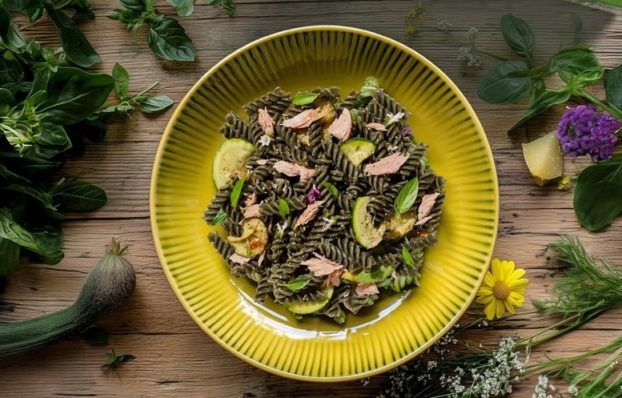
This comical campaign ran as in-store print posters and via organic and paid social. The creative was also featured in Kind Magazine and in digital advertorial format.
The cannabis space may be one of the toughest sectors for marketing communications to find success, but for Sister Merci, it’s smokin’.
Positioning itself as a strategy-led brand-building shop specializing in cannabis marketing, Sister Merci touches all aspects of the business. From retailers to licensed producers to accessory companies, four-year-old Sister Merci has bootstrapped its way to the top of the crop.
Founded by ad industry veterans Paul Lawton (chief strategy officer), Katie Waterman (CEO), Amanda Wood (chief creative officer) and Andrea Dart (managing director), the leadership team also includes special advisor Stephen Headford. The firm is now 15 strong and growing.
Prior to cannabis’ 2018 legalization in Canada, Lawton was VP brand strategy at Cossette and led the launch of the Canopy Growth portfolio of brands. Prior to that he had a stint at Weber Shandwick, which is where he met the other Sister Merci founders-to-be. They got together to wield a deep understanding of marketing regulations in the Cannabis Act and how to develop compliant strategies and creative that can break through for cannabis brands.

The campaign for cannabis brand Cruuzy, which Sister Merci launched from scratch, ran as a combination of in-store posters and a 3D merchandising display featuring a wavy hand logo.
“We come from big agencies, where you’re not often given the opportunity to come up with a new brand,” Waterman says. “Luckily, we’ve had the opportunity to do that dozens of times in the cannabis space.”
While Sister Merci is a boutique, it has full creative and strategy teams, in addition to client service and production. Key clients have included Tilray, Hexo and Organigram. For the latter, Sister Merci helped build Shred, which regularly tops the 10 most-searched brands on the Ontario Cannabis Store website, and co-created its recently launched value brand Holy Mountain.
One of the agency’s calling cards was its rebranding for Up Cannabis (owned by Hexo), which sat on the shelf without much support until Sister Merci got to work.
Tapping into that most Canadian trait, the agency took the opportunity to say “Sorry,” apologizing to cannabis customers for industry chaos marked by product shortages, high prices and lack of accessibility. The integrated campaign directly responded to feedback from social media and review websites, adding that the company had “stepped Up” its portfolio with higher THC offerings.
Sister Merci got its first taste of creating a brand from scratch with Cruuzy. Partnering with a licensed producer, it named the brand, designed the visual identity and developed the go-to-market plan. This helped get the brand listed across Canada quickly, and contributed to the first drop selling out in three weeks.
Lawton pitched in as temporary CMO to get the brand rolling. “It was challenging giving up one of our partners to work elsewhere, but that experience allows us to talk to clients with more credibility,” Waterman says. “We have a better understanding of their operational pain points. It set us up for more success because now we can consult and troubleshoot across the entire business.”
Sister Merci also has enjoyed a successful partnership with Collective Arts Brewing. Working with Collective Arts’ internal creative director Steve St. Jean, Waterman says, “We co-created a beautiful YouTube spot that shows off all the incredible artwork and artists they’ve been working with.” The spot was part of an integrated digital campaign that reached over 17 million viewers and helped grow Collective Arts’ social footprint.

Sister Merci collaborated with Collective Arts Brewing to promote its beer and spirits collections. They created a masterbrand digital campaign to drive sales and awareness over the summer months, centred around a short animated video that plays off the illustrations to bring the products to life.
Research is key to the practice. Before he was in advertising, Lawton was a sociology professor, and has an appreciation for qualitative methods such as ethnography. The firm often employs social science PhD students to help with research, and at least once a week the entire Sister Merci team goes out to talk to dispensaries and budtenders to understand customer behaviour.
And they are immersed in cannabis culture. “Everybody [is learning to] grow their own plants from seed to harvest,” Waterman explains. “Then at our holiday party, everyone brings a sample and we have the Cannabis Cup to see who grew the best buds.”
The agency is now setting its sights on the US market after helping American brands Wyld and Cann enter Canada. Waterman adds that both have held the top spot in the US in their respective categories of gummies and beverages. “Building brands and markets that are just coming online from a regulatory standpoint is what we know best, and what excites us the most,” she says.
CONTACT:
Katie Waterman
Co-founder and CEO
katie@sistermerci.com
The 2023 Indie List:
Intro
Zulu Alpha Kilo: Borderless creativity
Agnostic: Meeting brand demand in health and food
123w: Creative-driven M.O. serves as brand accelerant
Push Media: Focus on audience and research serves changing brand needs
Lg2: Fresh lens; different perspectives
Ray Agency: Leading brands to unexpected places
Rain: Growing to reach new heights
G&G: Celebrating a decade of success
Fuse Create: Creative efficacy for the win
Round: A model for our (budget-conscious) times
A&C: Connecting for growth and the greater good




















